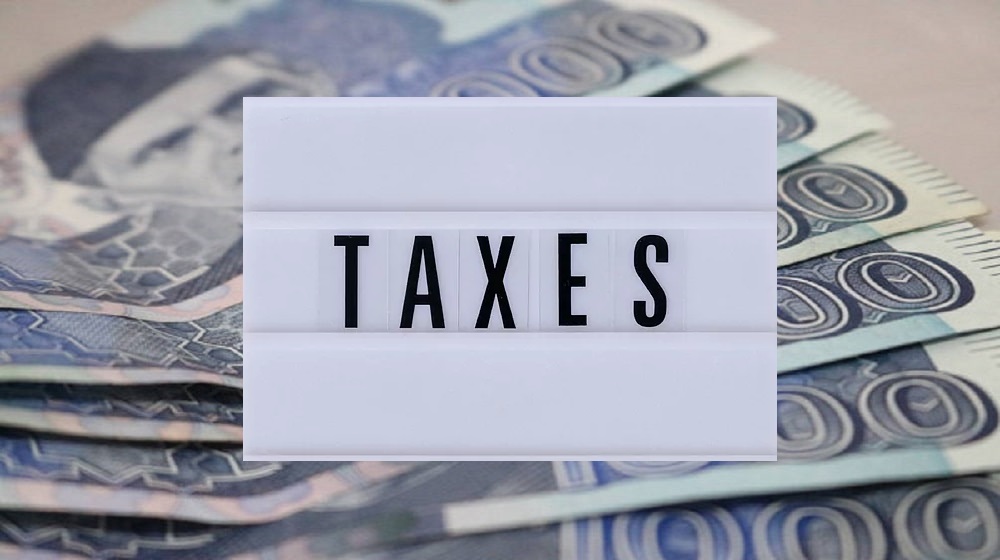Zafar Iqbal
Pakistan’s tax system is facing a crisis. The government, supported by the tax bureaucracy, has decided that stricter enforcement and harsher penalties are the keys to boosting revenue. A recent proposal for stricter spending controls on taxpayers and greater discretionary powers for the tax authorities aims to tackle this issue. However, such measures alone will not solve the deep-rooted problems that have led to Pakistan’s abysmally low tax-to-GDP ratio, which is currently below 10%, far below the international standard of 18% for developing countries.
The government’s ambition to raise the tax-to-GDP ratio to 13.5% through such legislation is unrealistic without addressing the fundamental flaws in the system. Despite this, there is a growing sense of complacency among the political elites, business leaders, the military, and the bureaucracy, all of whom are reluctant to reform the tax system. They understand the systemic issues contributing to the low tax revenue, but no one is willing to make the hard choices required to fix it, fearing they will lose their privileges and power.
The recent remarks by the Finance Minister and the Chairman of the Federal Board of Revenue (FBR), who confidently claimed that the target of increased tax revenue could be met once the proposed amendments were passed, highlight the disconnect between the rhetoric and reality. The truth is, Pakistan has been aware of its tax shortfalls for years. However, the government continues to resist addressing the underlying issues, such as the taxation of income from retail, urban real estate, and agriculture, areas where the country’s wealthy elites hold significant interests. Instead of targeting these lucrative sectors, the government opted to burden salaried individuals and compliant businesses further, imposing higher taxes.
This approach is already showing its limitations. Pakistan is facing a shortfall of nearly Rs 350 billion in tax collection for the five-month period between July and November. A closer look at this situation reveals that the country’s tax-to-GDP ratio remains stagnant, while neighboring countries like India, Bangladesh, and Sri Lanka have made more substantial progress. The reason for this divergence lies not in the enforcement of punitive measures but in a fundamental overhaul of tax policies in those countries. They focused on creating fair, transparent, and equitable tax systems, plugging loopholes, and eliminating exemptions that allowed influential groups to avoid taxes.
Pakistan, however, continues to make the same mistake. While penalizing tax evasion and avoidance is essential, it must come after a thorough reform of the tax system. The government needs to create a tax structure that is perceived as fair by the general population, not one that disproportionately targets the middle and lower-income classes while allowing the wealthiest to exploit exemptions and avoid taxes.
The root cause of Pakistan’s low tax collection is not simply the inability to enforce penalties but the systemic loopholes that make tax avoidance easier for powerful elites. For instance, exemptions worth trillions of rupees, granted to influential lobbies, remain intact and untapped, draining the country’s coffers. Without addressing these exemptions and ensuring that everyone pays their fair share, no amount of enforcement will be sufficient to raise the tax-to-GDP ratio to a sustainable level.
Moreover, countries that have successfully increased their tax revenues have done so by building trust between the state and taxpayers. This requires a tax system that people believe is equitable and transparent. In Pakistan, the perception that the tax system is corrupt and heavily skewed in favor of the powerful prevents a broader participation in the tax net. Many citizens and businesses actively avoid taxes, not necessarily because they want to, but because they feel they will never receive the benefits of paying into a system that is widely seen as unjust.
The focus should therefore be on creating a tax policy that works for everyone. Pakistan must start by tackling its regressive tax structure, addressing the real estate and agricultural sectors, and eliminating the loopholes that allow wealthy individuals and businesses to avoid taxes. The government must be willing to take on powerful lobbies and vested interests, even if it means taking unpopular decisions. This is where political will and courage will play a crucial role.
Pl, watch the video and subscribe to the YouTube channel of republicpolicy.com
Another key area that needs attention is the digital economy, which remains largely untaxed. In today’s world, where digital transactions are growing exponentially, Pakistan is missing out on a significant opportunity to boost tax revenues. The government needs to develop a framework that allows it to capture taxes from digital businesses, which operate largely in the informal sector, and are often the least regulated.
The government’s focus should not solely be on punitive measures but also on creating a system that encourages compliance. This can be done through education campaigns, simplifying tax processes, and incentivizing taxpayers. A transparent and accessible system that rewards compliance will encourage more individuals and businesses to contribute their fair share. This would be a far more effective strategy than relying on harsh penalties, which often result in pushback and resentment.
Ultimately, Pakistan’s tax reforms will only succeed if they are part of a broader strategy to overhaul the country’s economic and political systems. The elites must be forced to share the burden of taxes, and the tax system must be made transparent and accountable. This means eliminating exemptions, simplifying regulations, and addressing the informal economy.
The current approach to tax reform—relying on harsher enforcement measures—simply isn’t enough. Pakistan’s economic future depends on a comprehensive, fair, and transparent tax system. If the government continues to ignore the need for structural reform and only focuses on punitive measures, it will continue to struggle with low tax collection and a stagnating economy.















